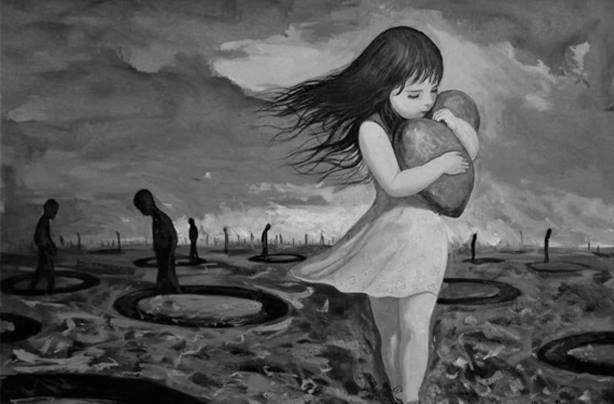7 Behaviors People Who Were Unloved in the Childhood Show In Their Adult Lives
“Beyond having their physical needs for food, water, shelter, and hygiene met, young children also need plenty of emotional and cognitive support, love, and nurturing. Adult caregivers should make it a point to express love and affection for their children every day.” ~ Angela Oswalt, MSW, Natalie Statts-Reiss, Ph.D., and Mark Dombeck, Ph.D.
The early childhood years are the years where the brain forms network connections which are very complex. The forming of the brain’s neurons myelination – is 80% complete by age four. In other words, the future 8 out of 10 is completed. According to many scientists, the human subconscious commands about 95 percent of our behavior, and this “subconscious programming” starts from birth to six years.
As you know, the brain is responsible for everything we say, do and think. If the child isn’t adequately nurtured, the subconscious will program in a form with the given information from the environment and the brain development is affected. Meaning the child’s emotional networks are underdeveloped.
Peg Streep, a New York City-based psychologist, explains the relationship between early childhood and adult life:
“While it’s true that everyone’s childhood experience is different … there are nonetheless broad and reliable statements which can be made about the effect of (childhood) experiences. They are invaluable to understanding how your childhood shaped your personality and behaviors. Just what a behavior, or signs, does a person display that was unloved and neglected during childhood?”

Here are the seven of the behaviors that people display:
1. Lack of trust
It’s essential that the people that are surrounding the child are stable and show and live loyalty and trust. In the mind of the baby, everything programs itself what it sees and feels, the mind remembers through pictures and symbols. Without a stabilized surrounding, the child will have difficulties with trusting other, and more importantly, trusting itself.
2. Poor emotional intelligence
Children learn how to communicate and understand the people around them through gestures and words. Both play a very important role in the child’s development, such as understanding, compassion, articulate the feelings, show emotion and understand emotion, manage fears. Without the ability to correctly interpret their emotional states, they may end up being emotionally underdeveloped, so they lack of emotional intelligence.
3. Fear of failure
Children who grow up in a poor quality environment being neglected develop a strong fear of failure and have troubles to find out their self worth. On the opposite, a healthy environment where the child is loved can create a nice basis to create confidence and realize it’s self worth. Many otherwise intelligent people don’t live up to their potential only because they weren’t loved and embraced as children.
4. Toxic relationships
The human brain learns, remembers and understands trough association and pattern recognition. In psychology and cognitive neuroscience, pattern recognition is “a cognitive process that matches information from a stimulus (the outside world) with information retrieved from memory.” Regarding relationship, the kids who were surrounded with a negative energy from other people subconsciously lead themselves to toxic relationships.
5. Insecurity and attachment
Every psychologist can agree to the point that healthy surroundings (such as friends later in the child’s life) can help and balance the negative sides of the home they’re growing up in. But how could the child trust and rely on someone when the people who should provide security and care didn’t give the child enough? That’s when insecurity grows.
6. Depression and anxiety
Depression and anxiety are definitely the most common mental health issues in the world. D&A are sourced mostly under two circumstances – the first one is if the child is unloved, unappreciated, neglected; and the second one is the complications that the child is showing once it ages and how it’s dealing with them. These illnesses are often connected with the family history, so if your parent suffers from depression and anxiety the child will likely suffer too.
7. Oversensitivity
If the child is misfortunate enough to grow up in a loving home, it’s pretty natural to take things personally later in life. People who deal with problems and issues with themselves often project their issues onto others and can’t understand that people are sharing their opinions and thoughts about a certain thing and it doesn’t mean that they want to hurt them. The person also fears of rejection because as a child, the child felt unloved and insignificant in their parent’s lives and in the family.
Source: PowerOfPositivity

This is all vary true / but can all be changed